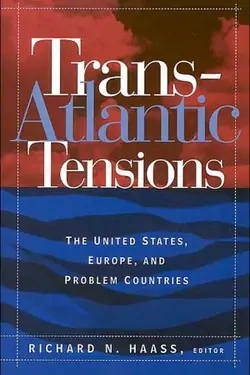
Transatlantic Tensions
The United States, Europe, and Problem Countries

- Book
- Foreign policy analyses written by CFR fellows and published by the trade presses, academic presses, or the Council on Foreign Relations Press.
More on:
Americans and Europeans are divided by more than an ocean when it comes to designing and carrying out policies toward countries that repress human rights, develop weapons of mass destruction, and/or support terrorism and subversion. Accounting for this divide are distinct interests, domestic politics, and above all profound disagreements between Americans and their counterparts in European capitals and Brussels over what tools of foreign policy—sanctions, engagement, military force—to employ to change the behavior of problem countries. The result is that Americans and Europeans often work at cross purposes—and that disagreements over policy toward problem countries threaten transatlantic cooperation in other areas, be it within Europe or in building an open world trading system. "Problem" countries selected for treatment in this study are Cuba, Iran, Iraq, Libya and Nigeria. In each case, leading American and European experts contribute separate chapters explaining sources of U.S. and European differences, consequences for policies designed to influence problem states, and prospects for bridging policy rifts.
Contributors are Pauline H. Baker, Antony Goldman, Kenneth I. Juster, Geoffrey Kemp, Dominique Moisi, Richard A. Nuccio, Gideon Rose, Joaquin Roy, Peter Rudolf, Stefano Silvestri, and John J. Stremlau.
More on:
 Online Store
Online Store